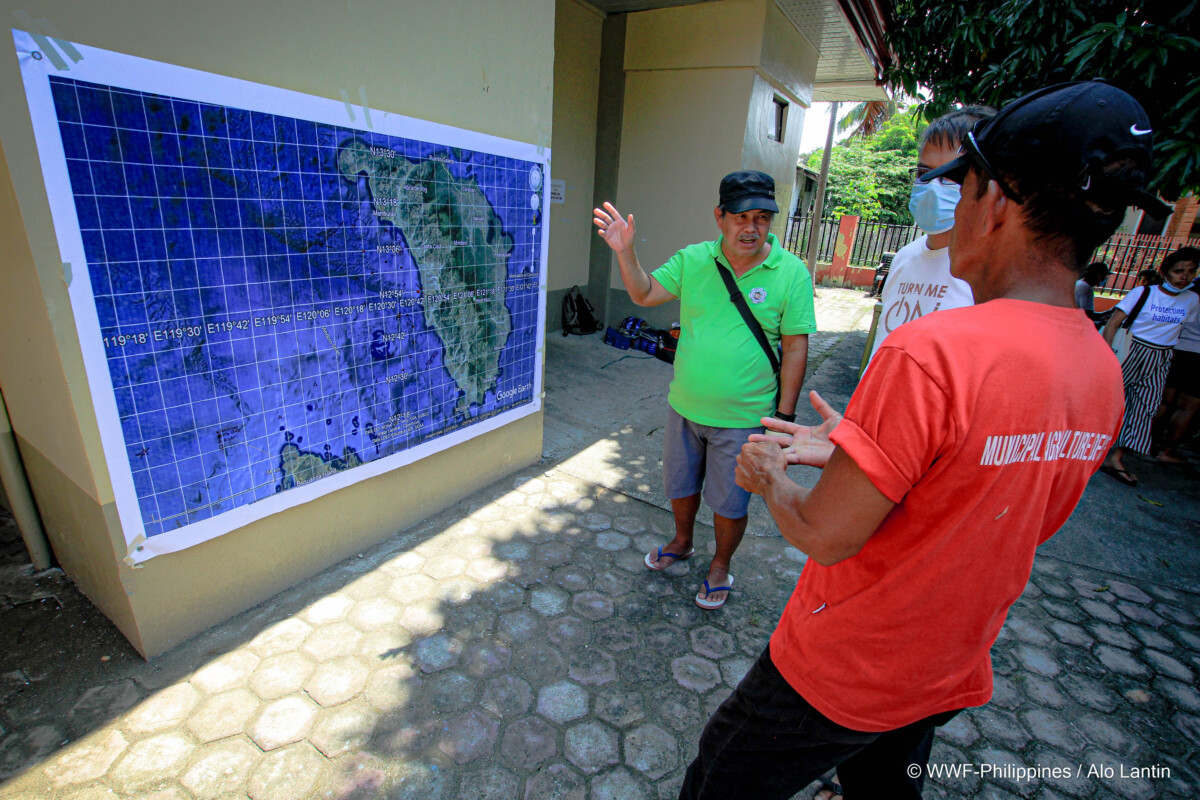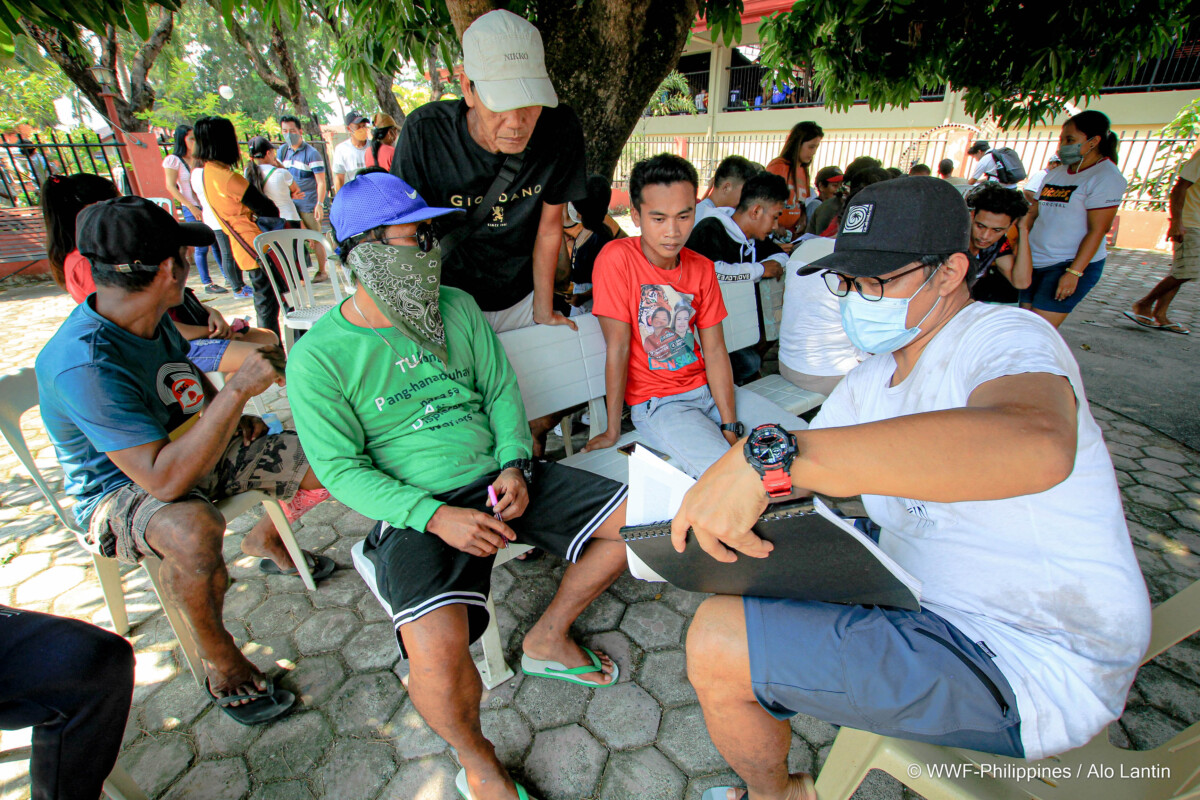WWF-Philippines Study Explores Interactions Between Handline Tuna Fishers and Endangered Species
September 2022

Bicol University Professor Plutomeo Nieves plots out fishing activities on a map of Occidental Mindoro. The study looked at the fishing activities of handline tuna fishers in the Lagonoy Gulf and Mindoro Strait. Photograph © Alo Lantin / WWF-Philippines
A recent study commissioned by the World Wide Fund for Nature Philippines (WWF-Philippines) has explored interactions between endangered species and small-scale yellowfin tuna fishers in the Lagonoy Gulf and Mindoro Strait.
The study, conducted from July to August, looked at the impact of handline tuna fishing on sharks and other non-target species. The study uncovered the different species encountered by small-scale tuna fishers and how the animals were subsequently treated.
By examining interactions between fisherfolk and endangered species, WWF-Philippines hoped to understand the threats faced by marine ecosystems to better inform fishery management strategies.
WWF-Philippines’ Sustainable Tuna Partnership (STP) program has worked with small scale handline yellowfin tuna fishers since 2011. The program promotes sustainable fishing practices to safeguard marine ecosystems and protect endangered species.
“Through anecdotes we were aware of the presence of endangered species within the bounds of our yellowfin tuna fishing grounds. We wanted to better understand the dangers facing these species, so that we may help our partner fisherfolk adjust accordingly,” said STP 2 Project Manager Joann Binondo.

STP 2 Mindoro Site Manager David David conducts an FGD with handline tuna fishers. Photograph © Alo Lantin / WWF-Philippines
The study, concluded in September, revealed that fishers would return sharks that were caught in their lines as much as possible. If the shark appeared exhausted or dying, however, fishers would take them to the market to make up for expenses incurred during the fishing trip.
In instances where sharks were landed, the whole animal was brought to shore. This is in contrast to the practice of shark finning, wherein the fins of the shark are removed and the injured animal returned to sea despite being incapable of movement.
The study also revealed that sharks have never been the direct target of the handline tuna fishers included in the study.

Handline tuna fishers answer a survey form as part of the fisheries information study. WWF-Philippines’ STP 2 program has partnered with handline tuna fishers as it pushes sustainable fishery practices. Photograph © Alo Lantin / WWF-Philippines
“Some are driven to selling the sharks they catch at the market, or to eating them, due to a lack of money. Some of us just aren't aware what species of shark we've caught, or whether or not they're endangered - we are tuna fishers, so we have no interest in sharks. We go out to sea in search of tuna, not sharks,” shared Estephen Cadag, a handline yellowfin tuna fisher from Sablayan, Mindoro.
The STP 2 program will be rolling out a communications campaign to help their partner fishers avoid catching endangered species present in their fisheries.
For more information, please contact:
Ms. Joann Binondo
Overall Project Manager
Sustainable Tuna Partnership (STP)
jbinondo@wwf.org.ph
For media arrangements, please contact:
Ms. Chezka Guevarra
Assistant Manager | External Communications and Ambassador Programs
cguevarra@wwf.org.ph
